Can Spray Foam Insulation Save on Energy Costs?
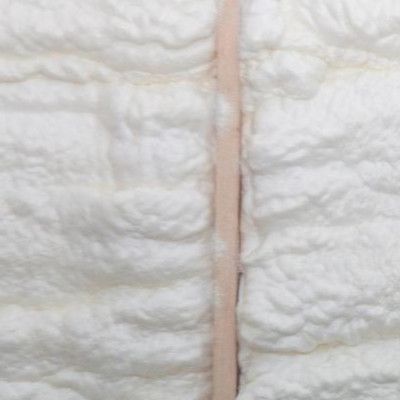
Yes, spray foam insulation can help save on energy costs. Here's how:
- Better Air Sealing: Spray foam insulation expands as it's applied, filling gaps, cracks, and seams. This creates an airtight barrier that reduces drafts, heat loss, and air leaks. By preventing conditioned air from escaping and outdoor air from entering, your HVAC system doesn't have to work as hard, which lowers energy consumption.
- Improved Insulation Performance: Spray foam has a high R-value (its ability to resist heat flow), especially compared to traditional insulation materials like fiberglass. Closed-cell spray foam insulation, in particular, provides superior insulation, making your home more energy-efficient by maintaining stable indoor temperatures.
- Moisture Control: Spray foam insulation also acts as a moisture barrier. By preventing the infiltration of moisture into walls and attics, it can help reduce the need for energy-intensive dehumidifiers or heating systems that might be used to combat humidity and mold.
- Long-term Energy Savings: Though the initial installation cost of spray foam insulation can be higher than traditional methods, the reduction in energy bills over time often makes it a worthwhile investment. Homeowners may see savings of 20-30% or more on heating and cooling costs.
- Reduced HVAC Load: With better insulation and air sealing, your HVAC system doesn't have to work as frequently or as intensely, prolonging its lifespan and reducing the need for costly repairs or replacements. Just think what the cost of a new furnace would be!
Should You Have Spray Foam Insulation Installed?
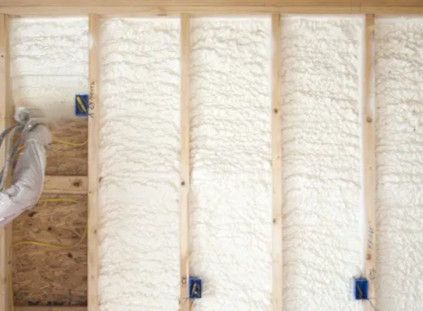
Deciding whether to install spray foam insulation in your home depends on several factors, including your goals, budget, climate, and the specifics of your home. Here's some good information to help you make an informed decision:
Pros of Spray Foam Insulation:
- Superior Insulation Performance:
- R-Value: Spray foam has a high R-value per inch, meaning it provides excellent thermal resistance. It can create a more efficient barrier against heat loss in winter and heat gain in summer, helping to reduce energy bills.
- Air Sealing: Unlike traditional insulation materials, spray foam expands to fill gaps, cracks, and crevices, providing a tighter seal and better air barrier. This helps prevent drafts and improves overall home comfort.
- Moisture Resistance:
- Closed-cell spray foam is moisture-resistant and can help prevent mold and mildew buildup. This is especially beneficial in areas prone to humidity or water intrusion, like basements or attics.
- Long-Term Durability:
- Spray foam insulation lasts a long time without degrading or settling. This makes it a durable option that can perform well for decades with minimal maintenance.
- Improved Indoor Air Quality:
- By sealing gaps and reducing air infiltration, spray foam helps improve indoor air quality. It can also reduce the potential for dust, allergens, and other airborne pollutants from entering your home.
- Soundproofing Benefits:
- Spray foam can help reduce noise transmission between rooms and from the outside due to its dense, expansive nature.
You Should Have Spray Foam Insulation Installed Before Winter!
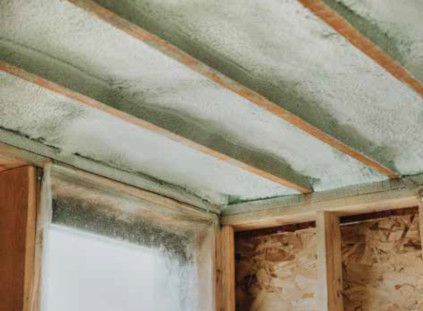
Installing spray foam insulation before winter in Michigan is a great idea. As fall and winter sets in here in Michigan and the weather gets colder, thinking about making your home more energy efficient and warmer is a priority. Old insulation can sag and will have gaps that can add up to heat loss and drafts in the home. It can also promote mold and mildew growth that comes with it's own set of issues. Spray foam insulation helps improve energy efficiency, keeps your home warmer, and can reduce heating costs. Spray foam also seals gaps and cracks, preventing drafts and moisture issues. Getting it done before the colder months will help you stay comfortable all winter long! Plus, did we mention that it would save you money in the long run?
Read more: Should You Have Spray Foam Insulation Installed Before Winter
Why is Spray Foam Insulation Good for Hot Summer Days?
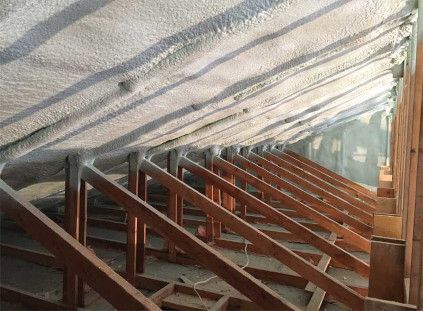
Spray foam insulation can help reduce energy costs during hot summer weather in several ways:
- Air Sealant: Spray foam insulation creates an effective air barrier. It fills gaps and cracks in walls, ceilings, and around windows and doors, preventing warm air from leaking into your home and cool air from escaping. These properties are unique to spray foam insulation because traditional fiberglass insulation does not seal up these cracks and gaps that allow air to escape or ingress. This reduces the workload on your air conditioning system, as it doesn't have to constantly cool incoming warm air.
Read more: Why is Spray Foam Insulation Good for Hot Summer Days?
Advantages of Spray Foam Insulation
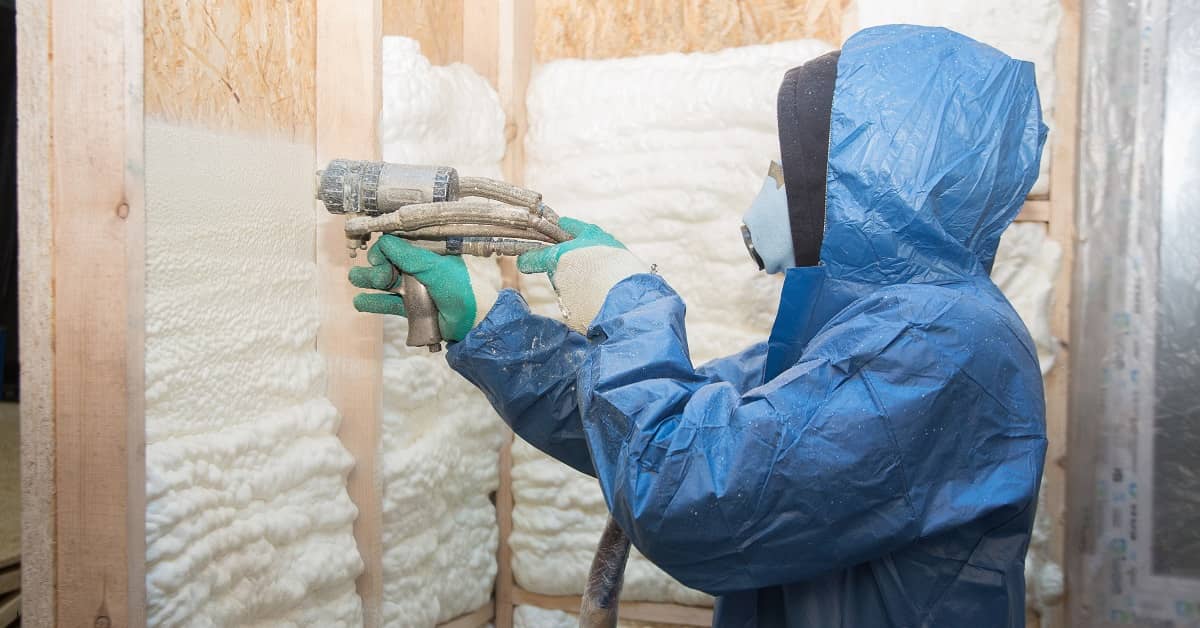 While there are many types of insulation available, spray foam insulation offers several advantages:
While there are many types of insulation available, spray foam insulation offers several advantages:

